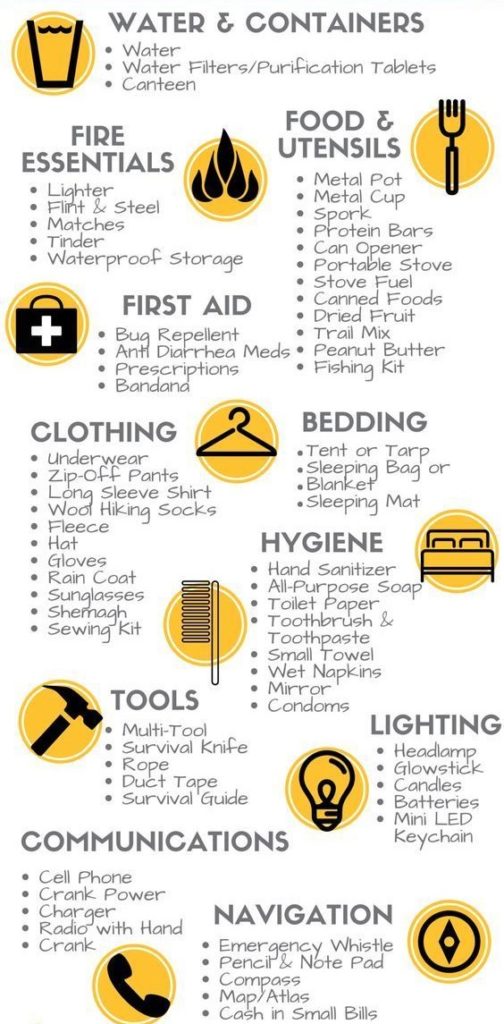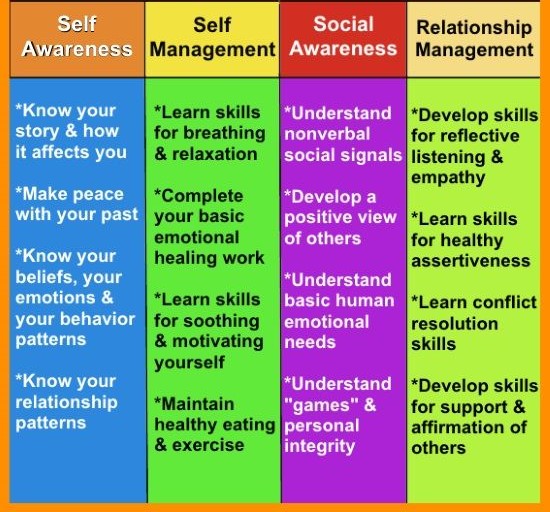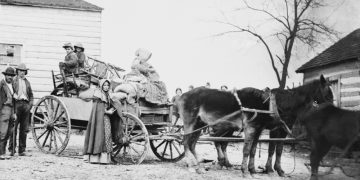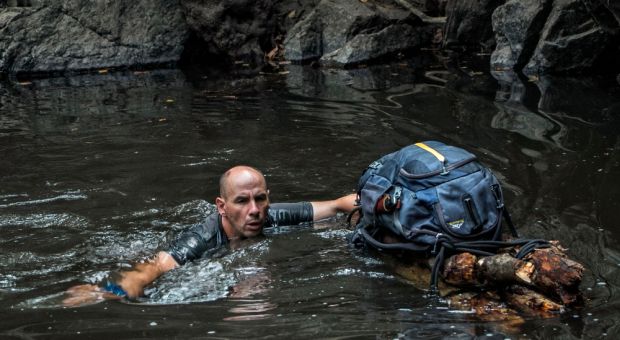Regardless of your level of commitment to surviving in times of chaos or turmoil, there are many places where you can make mistakes that will do more harm than good in the long run.
Even the most experienced preppers with years of experience in managing and surviving catastrophic events can make these mistakes. Chances are you already know about most, if not all of the mistakes listed here, however you may be committing them at this very moment. Have a look at some ways that you can overcome these shortcomings and make both your prepping activities and budget go further while improving the chances that you can survive anything that comes your way.
Failure to Take Part in Society
As someone that transplanted from a rural area to a city; I can more than relate to people that want to “go back to nature”, or find some way to own a homestead where they can have some peace and quiet. On the other side of the equation, or world, the economy, and the voting system are all tightly pegged to larger groups of people. No matter how much you may want to stay out of politics or other structural aspects of society, your lack of participation will only do more harm than good in the long run. Remember, when you are not present and speaking up, your voice is never heard at all.
When you do not express yourself in appropriate locations (such as town hall and city hall meetings, to the media, and in planning committees, other people will simply do what they please regardless of how short sighted and poorly thought out the plans may be. Everything we do as preppers is about survival, and that also means we must survive among other humans that have similar goals, but different ways of approaching them.
Here are some ways to overcome loss of valuable social connections and interactions:
- Make it your business to attend as many local, state, and federal political meetings as possible. This is where you learn about what your leaders are doing and what they are planning to do.
- Joint a citizen neighborhood watch or other group dedicated to paying attention to what is going on in the community.
- If you have children in public school, make it your business to sit in on classes at least once a month for observation purposes. When you pay attention to what is happening in the schools, you have a much better chance of understanding why our society is in the condition it is in.
- Take part in any school board meetings that are open to the public even if you don’t have children attending school in the district. Remember, schools cost tax dollars, and you have a right to know how those dollars are being spent.
- Go to your community library and look for free social meeting oriented programs. It doesn’t matter if you feel drawn to a reading hour or an arts and crafts program. The key is to get involved in something in your community and meet with other people.
- Ideally, you should be spending at least three evenings a week engaged in some kind of face-to-face, meaningful social interaction related to your community. If you decide to attend formal classes, then add at least one more day in your calendar for other kinds of social interactions. Sitting in a class may help you learn, however if you aren’t interacting with other people, you still need to do more.
- If you are housebound, it is still important to stay connected to your local community as much as possible. See if you can find a way to have public meetings broadcast to you via computer, or take part in other activities via remote linkups. Today, there are many free online collaboration tools and real time video meeting sharing programs that can be used to enable you take part in all kinds of social activities and meetings.
- Since we are also connected nationally and internationally by internet, it is also important to expand social interactions online. By this I mean make it a priority to have connections, contacts, and friends in other countries. This is one of the best ways to find out what is really going on instead of having to rely on mainstream media and its slanted spin on various events.
Failure to Organize, Plan, and Design
Have you ever wanted to start on some new project and felt like you wanted to start building immediately? No matter how motivated you may be, a lack of planning, careful research, and organizing can cost you both time, money, and any chance of success. For example, let’s say you have been looking at problems associated with contaminated water. These days, no matter whether your water comes from a commercially processed municipal supply, bottled water, or a well, there is a very good chance that it is contaminated with everything from pesticides to chemicals designed to kill various pathogens.
Now let’s also say that you have been looking into all kinds of pre-fabricated water purification systems that may work for drinking water, however don’t supply enough water for bathing, washing, and growing healthy foods. Unless you are prepared to spend thousands of dollars on large sized reverse osmosis systems and other filtration methods, the fact remains truly clean, healthy water at sustainable amounts is beyond the reach of most people in the United States today.

As you wrestle with this problem, there is also a good chance that you will turn to DIY options that can be scaled and expanded over time to eventually meet all your water usage needs. No matter whether you experiment with taking water from the air, rain capture, or UV purification methods, it takes a good bit of planning to design and build these systems. Unfortunately, far too many people get a basic idea and then try to build it without doing adequate research on the materials, methods, and tools required to achieve their goal. Here are some ways to ensure you get the most out of organization, planning, and design oriented activities:
- Keep a notebook just for listing all the ideas you get, or projects you think are interesting. One of the hardest things about planning revolves around figuring out what to do about things you don’t want to forget, but don’t have sufficient time to explore. When you keep a running list of ideas and projects, it is much easier to put them aside so that you can give them more attention later on.
- Use Free Project Planning and Collaboration Tools – no matter whether you want to build a a new plant rack or a tin can heater, there are hundreds of details that must all be put into their proper order. Even if you don’t use the collaboration parts of various web based planning platforms, the note tabs, task lists, and other tools will be of use to you. You can also try doing project planning on index cards or in notebooks, however this can make it hard to keep track of changes or fix mistakes. Remember, it only takes a few seconds to adjust something on the computer, but it can take hours to redraw blueprints or other plans that were developed by hand.
- Don’t Use Just One Reference for Research – During the planning and development stages of any project, it is very important to have accurate information. Unfortunately, the internet is full of wrong information that can prove, at worst useless or outright dangerous. As you may well know, I have come across wrong information many times as I have worked to develop new prepper related items of my own. For example, I found not one, but dozens of sites and videos that had useless information on how to make a pen gun. In a similar fashion, there were many sites that showed incorrect information on how to move air or water through a Tesla Turbine. From constructing vertical garden racks to installing and operating Linux, I have often had to search through hundreds of sites and put snippets of information together and then figure out what was missing. When doing your research, you will often find that most sites have the same information. Look for the ones that say something different or offer a partially different design. If something doesn’t make sense, or doesn’t look right, don’t hesitate to keep on researching.
- Talk to People With Experience – As sad as it is to say, many videos are faked to the point where something looks like it will work when it won’t. Before you launch headlong into buying expensive parts or “brand name materials that work”, take the time to talk to people other than the author of the video to see if the results can be replicated. It does not matter which forums you go to, just try to find as much balanced information as possible. Invariably, you will find people that were unable to complete the design even though it was presented correctly. Pay attention to fixes recommended by others so that you can get some better ideas about how to get around troublesome or tricky areas.
Failure to Balance Skills, Budget, and Time
When you are good at one thing, but not so good at something else, it can be very tempting to avoid tasks that present more challenge. For example, if you are better at shooting a gun than canning food, then you will probably want to spend more time focusing on hunting or building your firearm and ammo stockpile. On the other hand, no matter how able you may be when it comes to providing food and managing self defense related issues, it won’t do much good if you don’t know how to prepare your food or recognize the signs of spoilage or other problems. It is very important to always be working on all areas of a sound survival plan.
The most important areas include: food management, water management, defense, sanitation, shelter, communications, health needs, information gathering, clothing management, transportation, social interaction, money management, time management, and environmental quality management, and broad scale skills (example starting fires, tieing, knots, recognizing useful materials, etc).
These are some things you can do to make sure that you are addressing all areas of a sound crisis survival plan:
- Start off by making a list of as many vital crisis survival areas that you can think of. Next, for each area, list all the things that you actually know how to do and assign a rating level. You can use 1 for very little skill in this area, and 10 for very high. For example, if you have been canning food for years and know that you can do it safely, list that skill and give it a high rating. On the other hand, if you have read about how to smoke meat, but only done it once or twice years go, give yourself a 1 or 2 rating. Do the same thing for things that you have read about, but never actually tried. Finally, for each skill area, go ahead and list all your tools, supplies, and their condition. Once you complete this assessment, you will have some good ideas about where you actually stand in terms of balancing all your survival skill areas. It is very important not to rush through this process. Even if it takes days or weeks to assess your skills, that will be time well spent. Later on, you will use this as a basis to figure out where you need to put more effort as well as how best to manage any money you may need to get the materials and tools required to do well in this skill set.
- Many people interested in prepping often don’t realize how much time they are spending on one skill set at the expense of others. As a case in point, when you go shopping, do you spend most of your time looking at hunting knives, yet very little time checking out potential food storage buckets and PVC piping or looking for free wood pallets? If so, then this may also be a good indicator of how you are spending other time available for improving and building survival skills. In order to figure out where you stand in terms of time management, you will need to assess your daily, weekly, and monthly activities. Start off with a listing of how your day is divided. Next, look at how your schedule varies during the week, and finally through the month. During this process, you may or may not find some additional time that you can use for improving your skills or expanding your knowledge base. If not, you still need to look at what you are spending prepper related time on each month. Ideally, you should be spending at least one block of time each month on the most important skill sets. If you are spending too much time in one area, and not enough on others, this is the time to see what you can do to refocus your attention.
- Finally, failing to take a balanced approach to your prepper budget can also cause some serious problems. If you fail to buy good quality tools and supplies, there is a very good chance they will fail when you need them most. While you may want to buy items as quickly as you think of them, or cut corners to save money, it will only cause more problems later on. When it comes to your prepper budget, it is better to stop and evaluate what you already have vs what you need and what it will cost to obtain the best quality. Taking some time will also help you gain a more balanced approach in terms of categories of survival supplies and tools. For example, if you are spending over 50% of your money on food stockpiles or food storage, taking some time to buy a second freezer or some other higher priced item may give you a chance to consider medical supplies or something else that you have been spending far less money on.
Failure to Update Existing Skills
There is no question that being a prepper can often feel like being a “Jack of all trades, master of none” at times. No matter how much you think you know or how much experience you have, there are always going to be things that pass by the wayside in favor of things that you use more or tend to do because they are easier. Do you avoid parallel parking even though you may have driven thousands of miles since you passed your road test decades ago? Regardless of whether you avoid parallel parking like the plague, back into parking spaces so you can get out more easily, or engage in other compensatory behaviors, the fact is your driving habits probably don’t include the full skill set you needed to get your license.
While you may not realize it, this tendency can happen in every area in your life. It doesn’t matter whether you suddenly have to parallel park a car or tie a knot that you haven’t used in decades. In a crisis situation, you may have to rely on things you haven’t done in a very long time to get through the situation. Unfortunately, if you fail to keep all of your skills, including rarely used ones updated, there is every chance you will panic and make mistakes, or be unable to complete the task with enough skill to succeed.
As with learning and applying a new skill, you must practice existing skill sets and make sure you have the most updated information. For example, if you took first aid courses decades ago, this would be a good time to take a refresher course.
Over the years, there have been a number of changes in how bystander CPR is administered as well as changes in advice on how to apply tourniquets. Brushing up on existing skill sets will also give you a good chance to learn about new tools that are available as well as how to use them.
Failure to Use What You Have
When you have a shelf full of books or a drawer full of tools that simply sit there collecting dust, it is truly worse than not having them at all. If you don’t read and interact with materials that you are saving for a crisis, then there is every chance you won’t discover mistakes in the materials let alone figure out how to use the tools and materials that you purchased. Failure to use what you have can lead to at least two major problems that can derail your survival plans even in a fairly low level crisis situation:
- First – when you don’t interact with your stockpile and tools, you may not keep proper track of expiration dates. No matter whether you have hydrogen peroxide that has gone stale or medical supplies that have lost their potency, all that money will be wasted on top of leaving you helpless in a crisis. If you purchase something for your stockpile, make sure that you have an everyday use for it. Make it your business to keep a steady flow of materials moving through your stockpile so that you always have fresh supplies onhand for an actual crisis.
- Second – when you don’t use tools in your stockpile, you will miss chances to keep them properly cleaned and maintained. From pliers gone rusty to saw blades that lose their oil coating, even simple hand tools can become useless if you don’t work with them on a regular basis. To add insult to injury, even tools that have a long term warranty can break or not work properly very early on. It is much better to find out early on so that you can return the faulty tool and get something that will work better. For example, a few years ago I invested in a garden spade that had a fiberglass handle. Even though I was skeptical of the claims about these handles being more durable, I decided the “10 year warranty” made it worth putting my trusty old wooden handled spade aside. Sure enough, I wasn’t out digging more than a day or two when the handle started bending even under light loads. Within another day, it had completely busted. If I had put that spade in my stockpile and expected it to be of use in a real crisis, I would have been in a very bad situation. As it was, I returned it for a refund and bought a spare wooden handle for the spade I’ve been using since my teens.
Resolving this problem isn’t as difficult as it looks. There are dozens to thousands of things you can try to make or do that will help you survive both long and short term disasters. Do you have a sewing machine that has been sitting around for years? If so, visit any local department store that carries fabric and pick up a few yards of cheap material and a suitable pattern. No matter whether you sew up a blouse, aprons, wonderbags, or pillow covers, the important thing is to do something with the tools that you have onhand. Not only will you improve your skills, but actually completing a garment will make it much easier to gauge what items you need to have onhand.
Failure to Build Mental and Spiritual Wholeness
Today, psychological problems have reached epidemic proportions in the United States. Well over 1/3 of the people in this country are using, or have used some kind of drug for managing panic disorders, anxiety, and other stress related issues. At the same time, people are turning further and further away from even believing they have a spirit and that there is something beyond this physical world. When you are in a crisis, rest assured you will be mentally, emotionally, and spiritually challenged. This is why you must not overlook mental and spiritual strength or the exercises that can help you become stronger and more able to deal with any number of situations.
If you are having mental or emotional issues, there is no point to denying there is a problem. It is very important to seek help from a qualified counselor so that you can get the help you need.

Mental and emotional wellness isn’t just about managing a disorder. It is also about making sure that you have the mind set and outlook required to reduce the risk of developing issues in a crisis. In particular, as a prepper it is all too easy to focus constantly on what could go wrong instead of on what can go right. From there, paranoia and distress can easily make it very hard to see any kind of future where something good will happen. Ironically, many of us are preppers precisely because we want to restore higher standards of living as quickly as possible after a crisis occurs.
As you prepare for everything from wildfires and hurricanes to nuclear war, it is very important to pay attention to your outlook. Make it your business to look for something positive in your life and in everything that you are dealing with. Take time to appreciate the small things in life and stay away from music or other media programming during times when you know that you are vulnerable to suggestion. While it is very important to stay informed about what is going on in the world and who the major people are in each situation, you should not sacrifice your mental and emotional well being. The news of the day can wait until you have had some quiet time or have done something else that makes you feel good about yourself and the future, regardless of what it holds.
Today, very little is written about the spiritual side of prepping. Nevertheless, people across time have come through impossible situations because they believed that something outside of the situation would come to their aid. As stubborn as modern scientists remain when it comes to accepting there are sentient forces and beings that exist beyond detection of the 5 physical senses, there is no doubt that these things exist. When you develop your spiritual strength, it will be much harder to derail you from doing what you must in order to survive a crisis. It does not matter if you are battling what doctors call an incurable cancer, driving through a blizzard, or getting away from an active shooter.
Spiritual strength is what gives you the focus to move forward and stay on your path, or make adjustments if needed. Even if no big or flashy miracle comes along, what you have inside may be enough to get you through. This is not to say that you should ignore common sense or tangible, physical skills and activities. Rather, spiritual strength should enhance everything that you do, inspire you, and help you develop useful insights.
Failure to Pay Attention to Global vs National Trends
When President Trump was elected, it threw our nation and the world into shock. While his ideas aren’t necessarily new, they are most certainly controversial in a time when other leaders have agreed to put aside national interests in favor of joining together to achieve certain goals. Because Trump believes these objectives are costing the United States more than what we get in return, it should come as no surprise he is facing a lot of resistance both within and outside the United States. This is just one of many reasons why it is very important to focus as much, if not more on international news sources instead of just going with ones based in the United States.
Here are some things you can do to make sure that you get better coverage of both national and international news:
- First, recognize that mainstream media only takes what it thinks is the most important story of the day and adds the broadcasting company’s trademark spin to the materials. On the other hand, if you look at smaller broadcasts and publications, you may get more facts and a better idea of what is actually going on around the country. Today, the internet makes all kinds of news resources available for free. Start off by making a list of all the capitals of the 50 states and find a local newspaper for each one. If you read 10 sites a day from Monday to Friday you will have a very good idea of what is going on in each state and how the people may be feeling. As you read these sites, you may find other outlying areas of interest to you. Go ahead and look for sites dedicated to news from these regions.
- There is no question that mainstream media is sorely lacking when it comes to reporting on news from other countries. Once again, you can turn to the internet to find online news resources from around the world. You can also use social networking pages to find out more about different countries as well as meet people from those areas.
- When you read a story of interest, don’t automatically believe everything you read, regardless of the source. If at all possible, try to network with people that actually live in the area to find out what they think and feel. As a case in point, many world leaders say their constituents are blissfully happy with gun control. On the other side of the equation, they don’t want to talk about the genocides going on in their borders (like in Tibet), the number of times they have turned weapons against their own people (like recently in Nigeria), or the number of black market guns that are all over the place (as in Australia where it is estimated they are awash in guns). When you start talking to people from other countries, you are bound to find some that disagree with what their government is doing, and they will also tell you why. This can be a tremendous help when it comes to understanding that disagreeing does automatically mean you have to hate, nor does it have to become some huge monster of disenfranchisement. It can also help you come to the realization that you aren’t alone, bad, crazy, or strange just because you don’t think along the same absolute lines that mainstream media presents to you.
- Focus on business and monetary systems. It is very important to know what kind of money will be spendable if financial markets, systems, and computers collapse. This includes making sure that you are able to detect the signs that a currency revaluation may be coming.
Failure to Keep Up with Data Privacy
I will be the first to say that there are times when I wonder why we ever got away from writing things in stone. Over the years, I have spent hours on end poring over plans for aeolipiles and rebuilding old computers. Even I must admit, however, there are a number of modern devices that are very useful for prepping. While it took some work for me to get accustomed to tablets, smart phones, and apps, it was well worth it.
In other areas, lack of understanding and keeping up with modern technology can be deadly. Let’s say you aren’t keeping up with changes going on in the production of meat and dairy products. Now let’s also say that something happens like the way Hurricanes Florence and Michael hit the pig farms in South Carolina; only this time there are no emergency crews available to handle the biohazards associated with the damaged farms. When you don’t know what is going in with newer or dangerous technologies, it is very hard to stay safe around them. In this case, if you had to navigate through an area that once housed a commercial meat or dairy farm, you may not realize that you will be exposed to any number of deadly diseases.
These days, it is also very important to understand all of the hazards associated with loss of data privacy and security. Even if you still go around town and pay your bills in person using cash, the fact remains your information is on a computer somewhere. By the time you take stock of the digital footprint you create on your own as well as what others say about you, the amount of data that can be stolen is downright staggering. Keeping up with emerging technologies and trends is about much more than reading about the latest smart phone or the newest changes in big screen TVs.
Here are some things you should be learning about as much as possible:
- What tools are available to gather information about you. This includes optical, thermal, and auditory tools that can reveal what is going on in your home as well as discover what you have. It is also important to find out who developed these tools and what companies or groups may be capable of obtaining them.
- Changes to the internet backbone, data encryption, and consumer operating system interactions. The more you learn about these things, the more you will realize that simply staying off the internet isn’t enough to keep your records private. If you exist and have any kind of ID, license, or other documents, chances are there are computer files about you somewhere. It is very important to take stock of what is known about you as well as how it may be used.
- Take steps today to protect your information as much as possible. Now is a good time to explore various Linux distros as well as look for email, social networking, and other resources that have the best possible encryption and privacy standards. Even though this won’t stop the distribution of your information, at least you can try to slow down the rate at which hackers and others get into your information.
Failure to Accept the Environment is Changing for the Worse
In one sense it doesn’t matter what is causing the climate to become increasingly unstable. No matter whether the changes are simply normal stages the Earth goes through or man made activity is the culprit, there is no question that something is going on. The longer you avoid thinking about what you can do to limit risks associated with climate change, the worse a time you will have when things like super hurricanes, wildfires that burn entire cities in a day, or massive earthquakes suddenly make life very difficult. Together with this, the rising rates of cancer, lung disease, and mental disorders all point to serious consequences associated with air, water, and food borne pollutants.
Here are some things you can do to limit your risks as much as possible:
- Make sure you know how to capture water from the air and purify any water that you may find.
- Have activated carbon masks and other breathing filters onhand so that you can limit exposure to airborne pollution as much as possible.
- Sustainably grow your own food indoors
- Exchange home grown herbs for drugs manufactured in foreign countries. You will need to find a doctor that is both qualified and amenable to helping you achieve these goals.
- Do what you can to limit how much waste you pour into the environment. Start a compost bin, cook with a solar oven, reuse plastic bottles and food cans, or make your own soap products.Aside from saving money, all of these activities help reduce the amount of pollution you generate and will also put you well ahead of preppers that don’t have these skills. If you do all of these things as a routine, a large scale disaster will have less impact on you because you are already living on fewer resources and able to make it work.
Failure to Keep Up With Personal Changes
When I was in my 20’s, I could run a mile in about 2 – 3 minutes, stay up around the clock to study, and eat junk food without gaining an extra ounce. While I haven’t necessarily lost all my strength and agility, there are definitely age related changes creeping up that slow me down from time to time. As a prepper, it is always important to be in the best physical shape possible. Unfortunately, with age, the best possible shape isn’t always what it used to be.
Here are some things that may help you compensate for age related or personal changes:
- Pay attention to changes in sight and hearing. When your brain doesn’t get enough stimulation from your eyes and ears, rest assured your thinking will also slow down. Don’t wait for cataracts and other eye conditions to rob you of your ability to drive, read, or do other things. By the same token, don’t let changes in hearing set in to the point where you no longer go to meetings or enjoy social interactions. Hearing aides and cataract surgery/treatment can go a long way to preserving two important senses that are keys to managing routine needs as well as a major crisis.
- Get a walking stick and make sure you know how to use it. Even though you may still be steady on your feet, there is going to come a time when your knees, ankles, hips, and nervous system will begin to deteriorate. Slowing down your pace or gait changes are only one part of a much bigger equation that will eventually go against you. Once you fall and break a bone, recovery will be very difficult. Learning how to use a walking stick now and practicing with it can be a life saver. Remember, physical fitness isn’t just about the exercises and diet that you follow. It is also about being aware of changes that are happening that cannot be overcome and must be compensated for.
- Keep your mind sharp – of all the age related changes, this one can be the most insidious. Crossword puzzles, Sudoku and other challenging games can help keep your mind active. It is also very important to keep learning new things and seeing how you can apply them. Many researchers today agree that the more you keep your mind occupied with challenging things that engage as many of the physical senses as possible, the better chance you have of slowing up age related mental changes.
Prepping as a way of life can present many challenges as well as rewards. Interestingly enough, even people that have been living off grid or prepping for decades can still make some very common mistakes.
While 20/20 hindsight can offer you a lot of valuable information, it may be too late to correct past decisions once a major crisis occurs. Each day that our environment spirals into more unstable patterns is a day less that we all have to get ready for a major environmental collapse. It is also one day less that we have for living through food shortages, warfare, riots, financial collapse, and large scale disease outbreaks. As you look at your plans, stockpiles, and skills, make sure that you aren’t making these 10 common mistakes.
If you find that you are, the sooner you correct them, the better chance you will have of getting through any crisis that comes your way regardless of how much warning you have beforehand.










































































Emergency Survival Supplies, bunkers, freeze dried foods, seeds, doomsday drones, EMP-Proff fuel-less solar generators, bulletproof backpacks/shields, camping, etc ambertracks.com worthingtonbunkers.com 10% off coupon “lovejesus”
I couldn’t get Amber tracks to show their products.
If you are going to tell the results of the 3 second test, then do IT and stop running on at the mouth.
Those “three second test” lines are not titles for the following paragraphs. They are just links. The answer is there, if you click the link. Those links are just ads interspersed within the article and are totally unrelated to it.
2 things a prepper should think about. You can stock pile toothpaste but it will eventually run out. Instead of or in addition to, buy big bags of BAKING SODA to use when you run out. Very cheap to replace after it expires but still usable if expired. I also cultivate easy to grow MINT. You can add chopped mint and sweetener (not sugar, duh) to the soda for an effective dentifrice. (I was a dental tech in my youth)
Second, as a kid, I spent many summers in rural Nebraska at my grandparents that had no toilet or shower with only a pump in the kitchen sink so we had to use an outhouse. In the out house, after doing ones business, we threw a 1/2 a cup of lime on the leavings. I store a 50 lb. bag of Type S Hydrated LIME out in my garage and a 5 gal. bucket, toilet seat optional. You’d be aghast at how much poop 2 or more people can produce after just one week. You have to have a means to neutralize it. It’s good at reducing smell and flies.
Not sure why you are going the hydroponics route when it depends on outside sources to feed your plants.
Seems like aquaponics would be the way to go for a prepper or someone just trying to be more self sufficient.
Thad –
Good question. I see hydroponics as a better bridge to aeroponics than aquaponics. I like that both the water based systems improve yield, however I am always concerned about the increased risks for bacteria and other pathogens. In the long term, aeroponics is the safer of the three systems, however it is more complicated.
Very thoughtful column! Thank you very much!
I enjoyed the article. One thing though, if you were able to run a mile in 2-3 minutes you would be the fastest human ever in history!
Great thought provoking post, Carmela!
Thank you Carmela.
I have been at this for 60 years. Started one day when I said, to myself, “What am I going to do when one of my kids says, “Dad, I’m hungry.” “.
I always find something to think about when I read your information.
I wish I could tell you, monsieur Jones, to shut your mouth to your face. What have you done for anyone lately?
Thank you,
Ridgerunner
Thanks, Carmela. Always enjoy your articles.
when the power goes down how will you sustanibally keep the pumps running in a hydrophonics or a aquaphonics system for long periods of time
“When I was in my 20’s, I could run a mile in about 2 – 3 minutes” ummm I seriously doubt this stzatement. Otherwise I really enjoyed the article.
I totally disagree that “The Environment is Changing for the Worse”. You have fallen from the propaganda of The Church of Client Change. Ok, that isn’t what they call themselves. But they have Beliefs based on Faith that the World is Coming to an End, And those who disagree are called Deniers. Unless, of course, you are talking about the earth getting colder, in which case I agree.
Indeed, over the last 10 to 20 years, the planet has started getting colder, not warmer. Too bad, as warmth and carbon dioxide support plant life, and thus encourage all life including human, to flourish. As islands in the Pacific make clear, there has been no rise in sea water levels. Pictures from decades ago and nautical drawings from hundreds of years ago show no difference. Both Gore and Obama recently looked at purchasing sea-side lots in Martha’s Vineyard, a coastal island in the Atlantic. They don’t believe this nonsense, why should you or I? Winters are getting colder and growing seasons are getting shorter. Hurricanes, tornadoes, and other storms are dropping in frequency. Al Gore’s predictions have failed to come true. For example, you cannot move goods by ship from Europe to Asia across the Arctic Ocean each summer. This prediction never came true.
In terms of real environmental issues, the air and water in the US have been getting cleaner every decade.